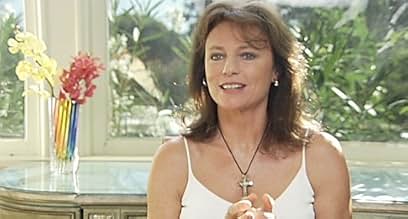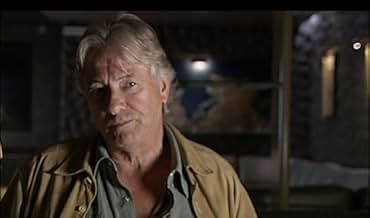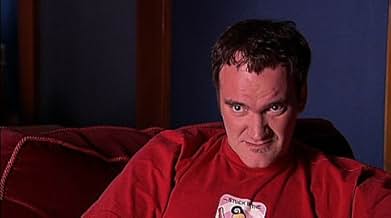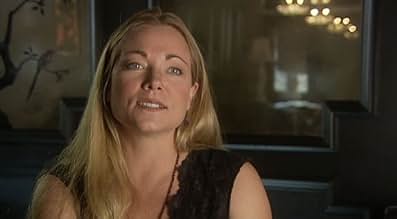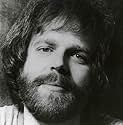Agrega una trama en tu idiomaThe story of Z Channel, one of the first U.S. pay cable stations and its programming chief, Jerry Harvey. Debuting in 1974 in LA, their eclectic slate of movies became a prime example of the... Leer todoThe story of Z Channel, one of the first U.S. pay cable stations and its programming chief, Jerry Harvey. Debuting in 1974 in LA, their eclectic slate of movies became a prime example of the untapped power of cable television.The story of Z Channel, one of the first U.S. pay cable stations and its programming chief, Jerry Harvey. Debuting in 1974 in LA, their eclectic slate of movies became a prime example of the untapped power of cable television.
- Premios
- 1 premio ganado y 1 nominación en total
- Self - Program Director, Z Channel
- (material de archivo)
Opiniones destacadas
The station had among it's subscribers some of the biggest names in Hollywood. What I found fascinating about this film is the power a cable channel can have. For example James Woods credits his Oscar nomination to the Z Channel's constant playing of the little seen movie "Salvador" to the right people.
As a film geek I also enjoyed the generous amount of film clips by director Cassavetes. The film turned me on to movies like "Bad Timing" and "F is for Fake".
Jerry Harvey was a college dropout who intensely loved film and film studies, making him the ideal choice for deciding what films would appear on Z Channel. Various former co-workers, critics, directors and actors, mostly independents, offer their fond memories of a channel that had the power to make or break a film or filmmaker. (Cassavetes includes a story about how one of Hollywood's most infamous film debacles, "Heaven's Gate" ended up being ridiculed because of terrible editing; when Z Channel ran the director's cut it was heralded by the public and critics alike.) The vision that Harvey had for the channel and the output it had is envious even by today's standards. They would have Bergman film festivals, uncut versions of films that had only been seen in their edited format, cult and avant garde films; and directors like Alexander Payne (sporting an old Z Channel t-shirt) and Quentin Tarantino share their memories of having tapes of old Z channel broadcasts.
Unfortunately, personal demons and a family history of psychological issues ended Jerry Harvey's life and the life of his wife when he first killed her then killed himself. This was shortly after the eventual demise of the Z channel itself, which first sold out and shared programming with ESPN, and then was dissolved altogether. Despite its unceremonious demise, Z channel is remembered fondly by those that experienced its programming and were involved in its broadcasting, and is looked upon with reverence by anyone who considers themselves, like Jerry Harvey, a life-long student of film. This is an excellent documentary and really is a must-see for film buffs. 8/10 --Shelly
NOTE: I just caught this tonight at the LA Film Festival, so I don't know if it will have a theatrical release but if it does, GO SEE IT!!!! I know it will eventually be airing on IFC, but seeing clips from such classics as "The Wild Bunch", "Heaven's Gate" and "The Leopard" on a big screen is INCREDIBLE!
James Woods remembers how much he enjoyed working with Oliver Stone on the movie "Salvador" (1986) and he thinks of the role of Richard Boyle, the journalist whose book the films was based on as his best acting achievement. The film was a flop and was pulled from the theaters in two weeks. Jerry Harvey offered to show it on the Z Channel and it ran there for over a month. The next thing, Woods recalls - the movie received two Academy Awards nominations for the Best Actor in a Leading Role for him and for Best Writing, Screenplay Written Directly for the Screen for Stone and Boyle. Woods is sure that it would not have been possible without Z Channel because nobody would see "Salvador".
Thanks to the documentary, I was able to recognize the movie that I saw many years ago in Moscow and still remember well, I could not only recall the title. I remember that the movie was Dutch, very erotic in the raw, brutal, twisted yet beautiful and passionate way. Watching "Z Channel.." last night, I was happy to instantly recognize "Turks fruit" (1973) aka "Turkish Delight" made by Paul Verhoeven in 1973. There are not very many directors in the world that can create the atmosphere of raw sensuality as well as Verhoeven (of his Dutch period, especially). I am going to try to find "Turkish Delight" and see it again.
The film does not hide the dark side of Harvey who with two sisters was raised by the fundamental catholic father in a strict house. One of his sisters has committed suicide and the other vanished (more likely she took her own life, also). Harvey described his childhood as a cross between "American Graffiti" and "Two Lane Blacktop". For many years, Harvey had fought his mental conditions but in the end, he could not cope with the problems, external - pertaining to selling Z Channel to a company that tried to combine films with sports programming and mental that had always been the part of his life. In April 1988 , Harvey shot to death his second wife Deri Rudolf with the gun who was presented to him by his long time friend, Sam Pekinpah. Then, he killed himself.
Controversial and disturbed, fiercely intelligent, madly in love with the films but sadly having lost the battle to the demons of depression, Harvey's will be remembered for bringing to the viewers the films in their "Director's Cut" and the best foreign and independent films.
In the conclusion I want to mention that the movie was made by Alexandra ("Xan") Cassavetes, the daughter of John Cassavetes, the Godfather of American Independent film-making and his muse Gena Rowlands.
Jerry Harvey was a film geek's film geek. He joined Z Channel in 1980 after programming films for a local art-house cinema. Under Harvey's direction, Z Channel really took off, competing against heavyweights like HBO. While remaining a local treasure, Z Channel's influence was disproportionate to its subscriber base, since so many filmmakers lived in the LA area. Harvey was a friend and champion of such filmmakers as Sam Peckinpah, Henry Jaglom, Michael Cimino, Robert Altman, and Paul Verhoeven, and was one of the first to show "director's cuts" of such misunderstood films as Heaven's Gate, Once Upon A Time In America, and The Wild Bunch. But he was also a deeply troubled man. His obsessive nature fuelled his work, but it often led to bouts of crushing depression. His mood swings culminated in a terrible tragedy in 1988 when he killed his wife and then took his own life. Remembrances from his friends are still fraught with grief and anger, more than fifteen years later.
While at first, I wondered if I were seeing two films (a portrait of Jerry Harvey, and an appreciation of overlooked films), I realized that the beauty of Cassavetes' film is that she's celebrating the life and achievements of Jerry Harvey by talking about some of the films that he brought to her attention through Z Channel. Not his tragic end, but what came before. So often, when a life ends in tragedy or violence, we only remember that part. Sure, you could call Harvey a murderer. But he was also an incredible film lover and filmmaker's advocate, someone who had a wide ranging influence as well as a group of loyal friends who are still reeling from his loss.
Z Channel only lasted about a year after Harvey's death, and the many people interviewed (Quentin Tarantino, James Woods, Theresa Russell, Paul Verhoeven, Robert Altman, and Jacqueline Bisset among them) seem almost as wistful about the death of a certain era in cable television as of their friend Jerry Harvey.
P.S. It seems fitting that I should end my 2004 Toronto International Film Festival experience with a film about a TV channel that director Henry Jaglom described as "like a film festival in your house every night."
¿Sabías que…?
- TriviaThis film was made only after the financing for another film project, a fiction film, partially collapsed.
- Citas
Alexander Payne: You just never know when you're living in a golden age.
- ConexionesFeatures College (1927)
- Bandas sonorasWhat'll I Do
Performed by William Atherton
Written by Irving Berlin
Courtesy of Paramount Pictures Corporation and Williamson Music
Selecciones populares
Detalles
- Fecha de lanzamiento
- País de origen
- Idioma
- También se conoce como
- Канал Z. Великолепная одержимость
- Locaciones de filmación
- Productoras
- Ver más créditos de la compañía en IMDbPro
Contribuir a esta página


